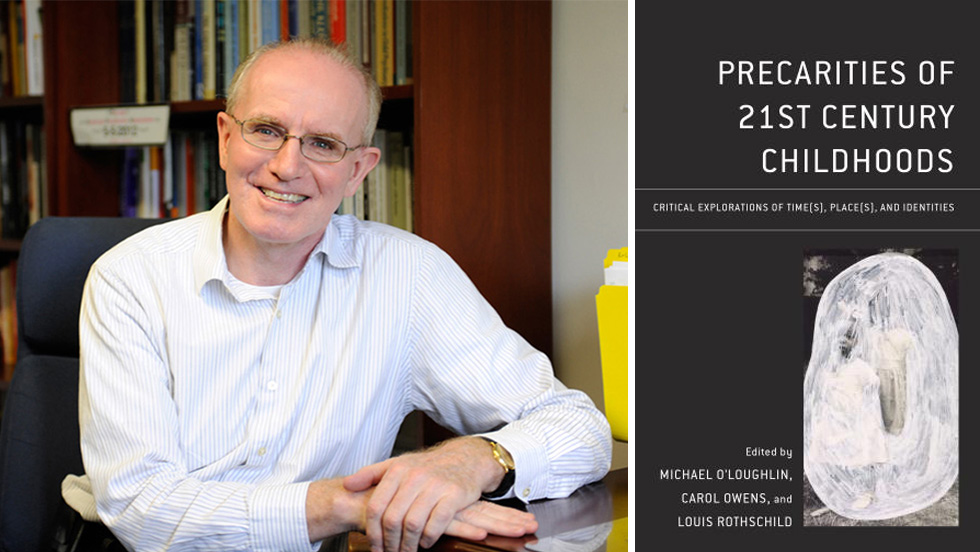
Michael O'Loughlin, PhD, professor in the Ruth S. Ammon College of Education and Health Sciences and the Gordon F. Derner School of Psychology, grew up poor in Ireland, and might have been destined for a life not much better off than his ancestors before him.
His family’s lot was shaped by life in a country with almost 1,000 years of colonial history and a record of national tragedies, including the Great Hunger of 1845–1852, which halved its population in less than 25 years due to migration and death.
If not for the intervention of a visiting school inspector when he was 7, Dr. O’Loughlin might not have developed the notion that education could lift him from the place in history where he would likely have been destined to remain. Because of his own precarious childhood, he developed what would become a lifelong interest in understanding the “life chances” of children around the world born into their own precarities—like war, poverty, forced migration and political oppression—and how these circumstances can limit their possibilities or expose new opportunities.
With a desire to explore varying viewpoints on this topic on a global scale, Dr. O’Loughlin invited two colleagues to join him in co-editing a book: Precarities of 21st Century Childhoods: Critical Explorations of Time(s), Place(s), and Identities (Lexington, 2023). This edited volume highlights internally focused, critical perspectives on the social, political, emotional and mental growth of children. From a psychoanalytic perspective, it examines and illuminates subjective cases that go unseen and unknown in societies around the world. It is Dr. O’Loughlin’s fifth book on childhood.
“I have written extensively about my childhood origins,” he said. “My own experiences have led me to have great interest in precarity … the circumstances which cause children to have restricted or expansive life chances based on the circumstances of their birth and upbringing.”
Dr. O’Loughlin authored a chapter in the volume, titled “Negotiating Agency in the Formation of Subjectivity: The Child, the Parental Other, and the Sovereign Other.” In it, he explores how the influence of parents and families can limit the agency of children and prevent them from becoming the person they were meant to be. He then expands the discussion of this influence to that of the state over the life of the child, particularly in societies where they face inequality, erasure of their histories and treatment as the “other.”
In the book’s introduction, Dr. O’Loughlin explains how he seeks to understand the ways in which the conditions that children are born into influence who they become. He writes, “I have long questioned developmental and linear assumptions and hegemonies and sought to re-imagine childhoods otherwise. In contrast to developmental theorists who conceptualize growth uncritically as linear and normative … I locate my understanding of child subjectivity in sociohistorical circumstance, mediated through familial and cultural socialization.”
Chapters are grouped into three categories—Times, Places and Identities—with chapters ranging from liminality in inner city schools, to the rewriting of family history in the face of migration, to how past fascism is affecting the present day in Italy.
The edited volume also includes a chapter by Dr. O’Loughlin’s colleague in the Derner School, Ionas Sapountzis, PhD, associate professor and director of the school psychology program. In “States of Nowhere-Ness in Children and Adolescents,” Dr. Sapountzis discusses children who retreat from the world and the experiences that contribute to them doing so.
“With over 40 million displaced children in the world at this moment, and with children dying in unprecedented numbers in conflict zones, the precarity of childhood is palpable,” said Dr. O’Loughlin. “It’s especially timely that we shine a light on their experiences.”